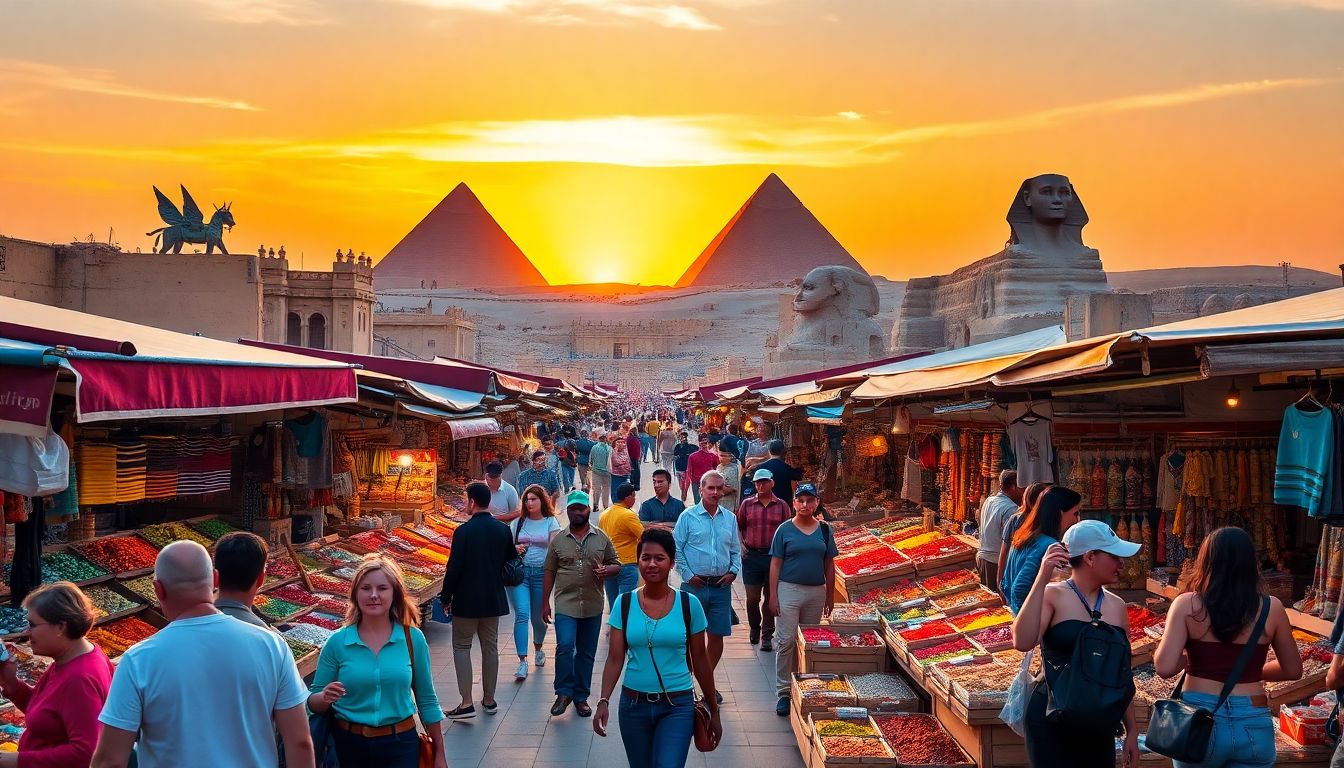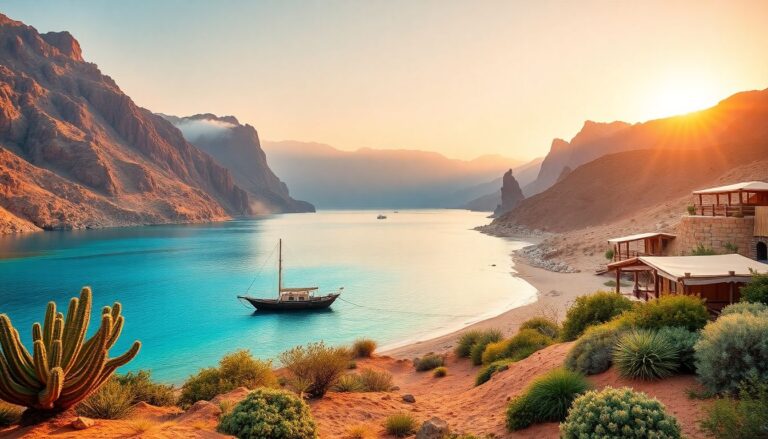Discover the Wonders of Tourism in Egypt: An Unforgettable Journey Through Ancient Marvels and Modern Attractions

Introduction
Imagine stepping back in time to a land filled with incredible history, massive pyramids, and vibrant cities. Egypt is a top travel destination that attracts millions each year. Visitors come for legendary monuments, stunning landscapes, and a rich culture that spans thousands of years.
Tourism in Egypt isn’t just about sightseeing. It’s a vital part of the economy, providing jobs and boosting local businesses. With more travelers discovering its treasures, the industry continues to grow and adapt. A trip to Egypt promises unforgettable moments, from ancient tombs to beautiful beaches.
The Historical and Cultural Heritage of Egypt
Key Archaeological Sites
Egyptian history is like a giant open-air museum. The Pyramids of Giza and the Great Sphinx are world-famous symbols of ancient Egypt. These monuments showcase the engineering skills of the pharaohs and remain some of the most visited sites worldwide.
Luxor and Karnak Temples are another highlight. They lie in the heart of what was once Thebes, Egypt’s grandest city. These temples aren’t just structures—they’re stories carved in stone. Archaeologists constantly find new relics, revealing more about Egypt’s past.
UNESCO World Heritage Sites
Egypt protects many unique places as UNESCO World Heritage Sites. Abu Simbel’s massive rock temples were built by Ramses II and are awe-inspiring. Historic Cairo, with its old mosques, markets, and churches, is a living museum.
Efforts to preserve these sites are strong. They help keep Egypt’s history safe for future generations. These sites aren’t just attractions—they’re vital pieces of human heritage shared with the world.
Museums and Cultural Exhibitions
The Egyptian Museum in Cairo holds thousands of priceless artifacts, including the treasures of Tutankhamun. Walking through its halls offers a glimpse into the lives of ancient pharaohs and queens.
Other museums across Egypt also display art, jewelry, and relics that tell Egypt’s story. Best times to visit are early mornings or late afternoons when the crowds thin out. Don’t miss the iconic mummies and ancient jewelry collections.
Modern Tourism Attractions in Egypt
Red Sea Resorts and Beach Destinations
Egypt’s beaches are some of the best in the world. Sharm El Sheikh, Hurghada, and Marsa Alam are hotspots for sunbathers and water sports lovers alike. Here, you can snorkel over coral reefs teeming with marine life or dive into shipwrecks rich with history.
Luxury resorts line the coast, offering spa treatments, private beaches, and gourmet dining. From lively night scenes to peaceful retreats, these destinations cater to all kinds of travelers.
Urban Exploration and City Life
Cairo, Egypt’s capital, is a mix of the old and new. Wander through bustling markets like Khan El Khalili, or explore historic sites such as the Cairo Citadel and Al-Azhar Mosque. Modern cafes, shops, and art galleries give the city a fresh vibe.
In Alexandria, you meet the Mediterranean’s charm — think seaside walks, ancient ruins like the Catacombs, and lively waterfronts. Emerging cities like Marsa Matruh and Aswan also offer unique experiences outside the busy tourist trail.
Adventure and Eco-Tourism
Egypt has outdoor adventures for eco-conscious travelers. The White Desert’s surreal chalk formations feel like another planet. Sinai’s mountains and the Sinai Peninsula’s natural parks offer hiking and rock-climbing.
Cruising down the Nile River remains one of the most popular ways to see Egypt. These cruises combine comfort with eco-friendly travel, taking you past temples, villages, and lush fields. Responsible tourism helps protect these beautiful areas for future explorers.
Planning Your Trip to Egypt
Best Time to Visit and Climate Tips
Egypt’s climate varies. Winters from October to April are cooler and perfect for sightseeing. Summers get very hot, especially in July and August, so plan outdoor activities early or late in the day.
Pack lightweight clothing, plenty of sunscreen, and a hat. Don’t forget your camera—there’s so much to capture!
Visa and Travel Requirements
Most travelers need a visa to visit Egypt. Some countries get visas on arrival, while others need to apply before traveling. Check your embassy’s advice before booking your trip.
Safety remains a priority. Keep updated with travel advisories, and consider booking guides or tours from reputable companies for a hassle-free experience.
Cultural Etiquette and Responsible Tourism
Egyptian customs are warm and welcoming. Dress modestly, especially when visiting religious sites. Respect local traditions and greet people politely.
Support local communities by shopping at markets and eating at locally owned restaurants. Follow conservation rules at natural and historical sites. Use credible travel sources so your trip benefits everyone involved.
Economic Impact and Future of Tourism in Egypt
Tourism attracts millions yearly, generating billions in revenue. It’s created jobs, supported small businesses, and helped rebuild historic sites.
Recent efforts focus on sustainable growth. Egypt upgrades its infrastructure and uses digital marketing to attract tourists worldwide. These strategies aim to make the industry more resilient against global uncertainties.
Conclusion
Egypt is a land of wonders—where ancient pyramids meet lively modern cities. Whether you seek history, adventure, or relaxing beaches, Egypt has something special for every traveler.
Start planning your journey today. Discover Egypt’s timeless magic and create unforgettable memories. Your adventure through history and culture awaits!






